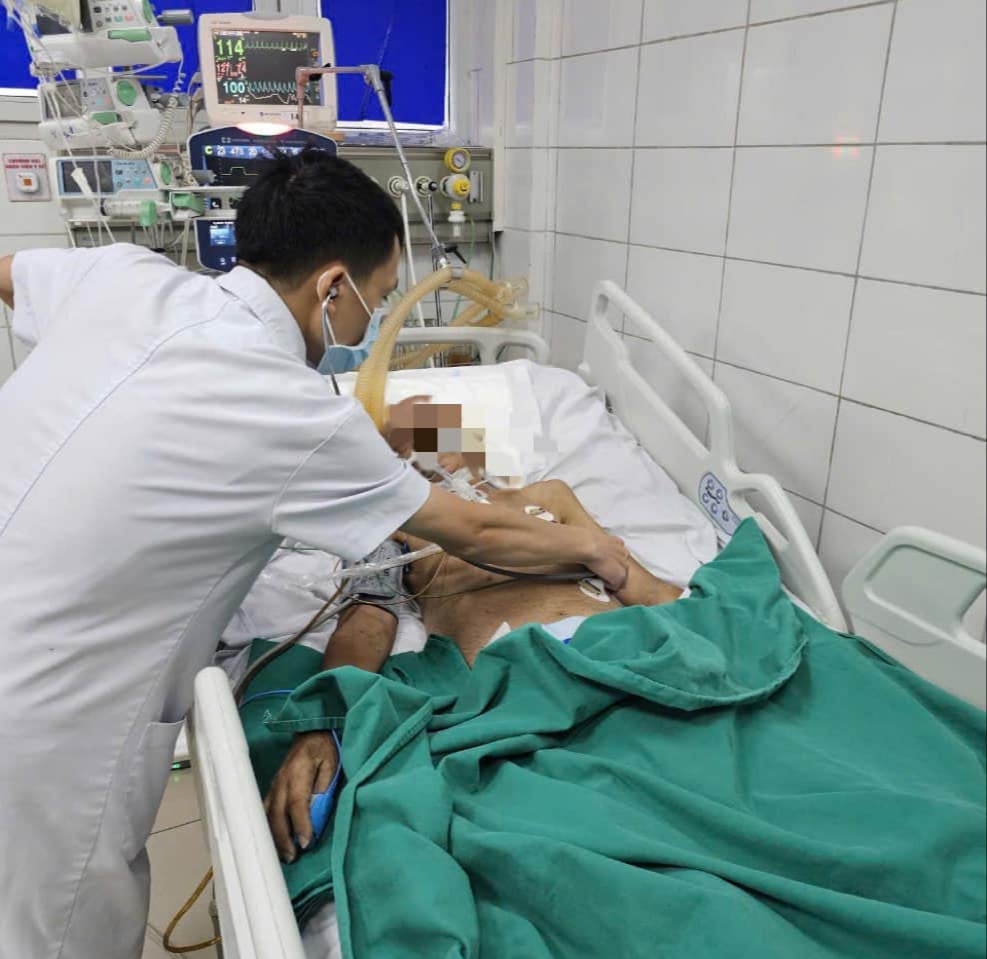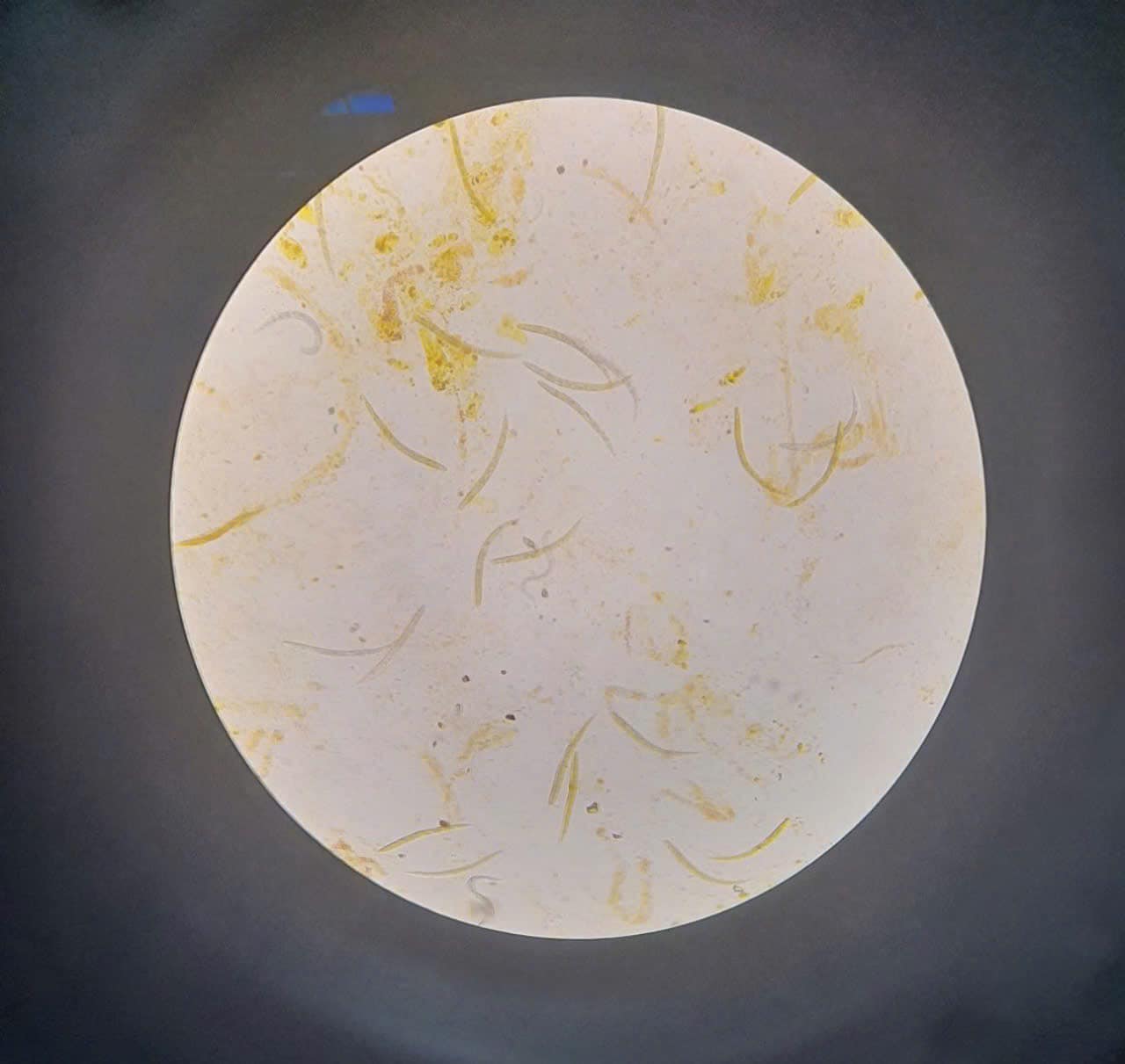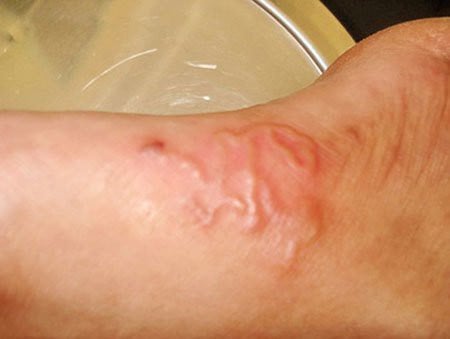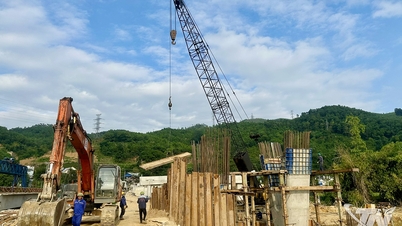GĐXH – In the past month, the patient has been tired, had poor appetite, increased jaundice, indigestion, dark urine, and yellow stools.
Information from the Central Hospital for Tropical Diseases said that recently, the hospital received a critically ill patient with many underlying diseases and widespread strongyloidiasis.
Patient LVT (72 years old, in Hanoi ) was admitted to the hospital with the diagnosis: Acute liver failure - Coagulation disorder/colon cancer. The patient had a history of non-Hodgkin lymphoma detected since July 2024, had received 2 chemotherapy courses, the most recent 1.5 months ago.
In the past month, the patient has been tired, had poor appetite, increased jaundice, indigestion, dark urine, and yellow stools.

The patient was in critical condition due to underlying disease and disseminated strongyloidiasis. Photo: BVCC.
The patient went to the medical facility with a drop in blood pressure of 80/50 mmHg and was diagnosed with acute liver failure/non-Hodgkin lymphoma. He was treated with vasopressors, oxygen therapy, and transferred to the National Hospital for Tropical Diseases.
Here, the patient was diagnosed with: Pneumonia - Sepsis/Acute Liver Failure - Non-Hodgkin's Lymphoma. The patient's condition continued to worsen, with progressive respiratory failure, requiring endotracheal intubation and mechanical ventilation.
Gastric and bronchial fluid tests showed many strongyloidiasis images consistent with the clinical picture, leading to the diagnosis of disseminated strongyloidiasis.
The patient was treated in the Intensive Care Unit with physical exhaustion and mechanical ventilation via endotracheal tube.
Doctor Dang Van Duong, Department of Intensive Care, Central Hospital for Tropical Diseases said: This patient is in the process of treating a serious underlying disease, Non-Hodgkin's Lymphoma (a cancer of the lymphoid blood cells), and has to undergo chemotherapy, causing severe liver failure and severe systemic immunodeficiency.
Therefore, when the patient was referred with severe infection, the doctors assessed the patient as having a risk of disseminated strongyloidiasis and performed a search test.

Image of roundworms in the patient's body. Photo: BVCC.
When the gastric and bronchial fluid tests showed strongyloidiasis, the patient was immediately started on specific strongyloidiasis treatment combined with broad-spectrum antibiotics. After the treatment, the patient showed significant improvement. However, the treatment for disseminated strongyloidiasis still had to be prolonged.
" Normally, strongyloidiasis in healthy people may only manifest as mild symptoms such as digestive disorders, rashes, fatigue, loss of appetite, etc. However, in immunocompromised patients, long-term use of corticosteroids or immunosuppressants may result in strongyloidiasis hyperinfection syndrome or disseminated strongyloidiasis, with worm larvae penetrating many organs such as the heart, liver, lungs, kidneys, and brain, accompanied by severe infection symptoms. Treatment is very difficult, expensive, and even life-threatening ," said Dr. Duong.
 Strongyloidiasis can have serious complications.
Strongyloidiasis can have serious complications.Source: https://giadinh.suckhoedoisong.vn/cu-ong-o-ha-noi-nguy-kich-do-vua-mac-ung-thu-vua-nhiem-giún-luon-lan-toa-172241024133818944.htm



















![[Video] Hanoi Oncology Hospital receives Second Class Labor Medal](https://vphoto.vietnam.vn/thumb/402x226/vietnam/resource/IMAGE/2025/11/08/1762561557241_img-2021-9778-png.webp)





















![[Video] Hue Monuments reopen to welcome visitors](https://vphoto.vietnam.vn/thumb/402x226/vietnam/resource/IMAGE/2025/11/05/1762301089171_dung01-05-43-09still013-jpg.webp)






































































Comment (0)